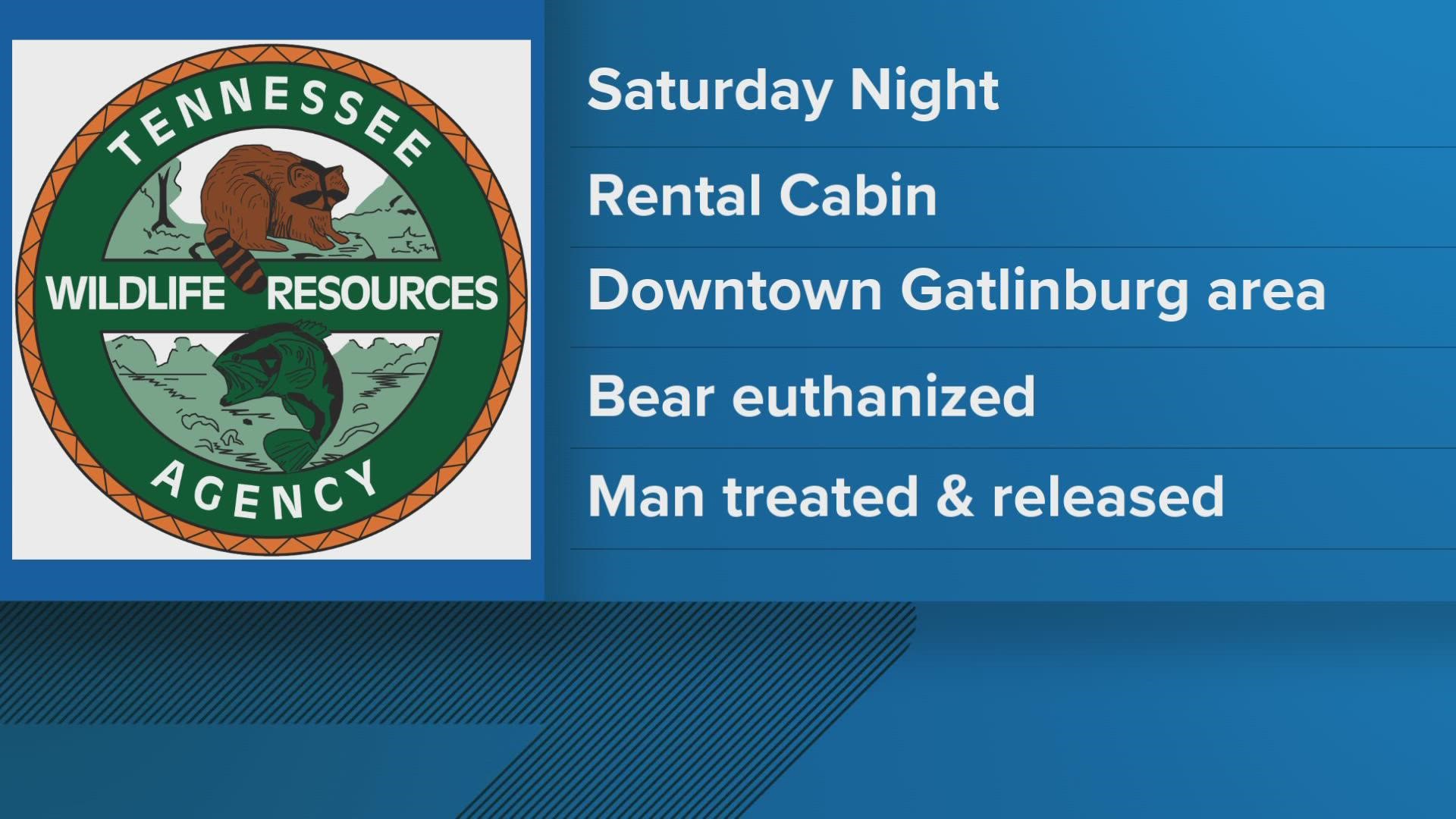GATLINBURG, Tenn. — The Tennessee Wildlife Resources Agency said it has confirmed the bear it caught and euthanized earlier this week was the one responsible for attacking a man inside a rental cabin in Gatlinburg.
The TWRA said it received DNA testing results linking the bear to the attack based on hair samples it collected at the cabin. It said the bear tested negative for rabies.
Wildlife officers have removed bear traps in the area where it happened.
On Saturday, officers responded to a bear attack at a rental cabin near downtown Gatlinburg on Red Bud Lane.
The TWRA said the man walked into the kitchen to find that the bear had entered through a set of French doors, saying the doors were not properly secured and the bear was able to push them open.
The bear charged the man and swatted at him—causing serious injuries to his face and the top of his head. The bear also scratched him across his back as he went into a bedroom where he locked himself in and called 911, TWRA said.
Police and EMS responded to the scene, but the man refused medical treatment. The man was later driven by family members to a local hospital where he was treated and released, according to TWRA.
A trap was set at the scene and a bear fitting the description was caught and euthanized early Sunday afternoon. The bear was a 2 or 3-year-old female, without cubs, weighing 209 pounds. Hair samples were sent for DNA analysis and her claws were swabbed for human hemoglobin testing.
TWRA explained that wildlife officers had not received any recent reports of bear complaints in this specific area, however, numerous bears inhabit Gatlinburg and other cities around the park.
Right now, bear activity is high in the Smokies because they are foraging for food ahead of winter. Some trails in the Great Smoky Mountains National Park have been temporarily closed due to the high bear activity.
Black bears habituated to human or other unnatural foods sometimes enter homes and vehicles in search of food. TWRA encourages people living or vacationing in bear-inhabited areas to:
- Never feed or approach bears
- Secure food, garbage and recycling
- Remove bird feeders when bears are active
- Never leave pet food outdoors
- Clean and store grills
- Alert neighbors to bear activity

